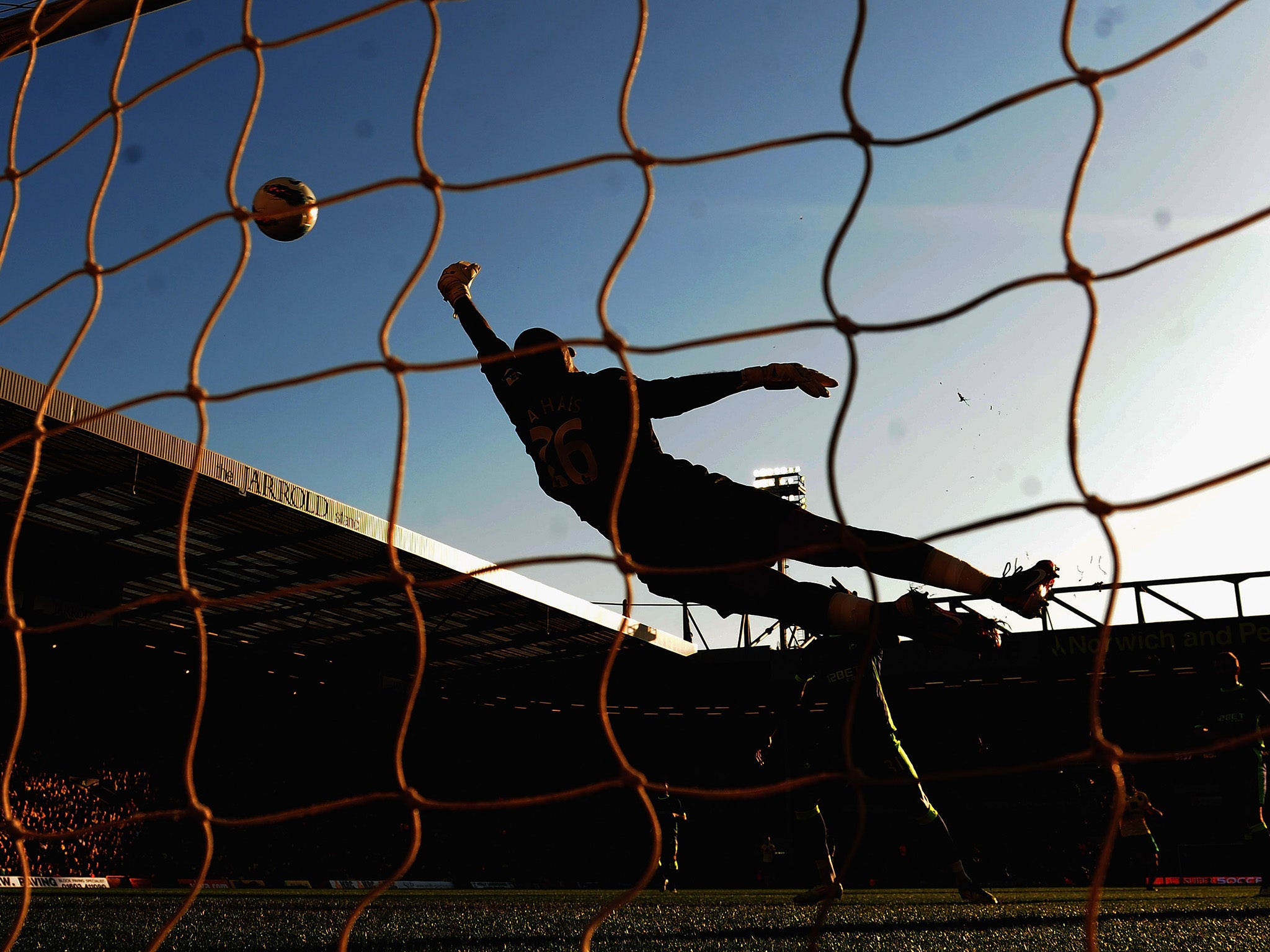The Game of our Lives: The Making and Meaning of English Football by David Goldblatt, book review: What profits did to football
Save! Could football lead a national renewal?

A non-football fan, if asked to fix the problem of our national game’s profound inequalities – its expensively assembled Premier League sides kept afloat by free-spending foreign plutocrats, its lower-league outfits struggling for solvency, its greed, corruption and stupidity – would probably arrive at the following solution: why not make football genuinely competitive, for example by allowing each team a maximum sum of money for transfers – say £30m a year – compelling them to recruit locally, giving their managers fixed-term contracts and job security and then, on a properly level playing field, seeing how everyone gets on?
A Premier League assembled on these lines would doubtless combine the advantages of equal opportunity, unpredictability and localism – for the attachment of player to club would be authentic – while alienating practically every fan who each Saturday afternoon squeezes his or her torso into an over-priced replica shirt. For, as David Goldblatt points out in this wide-ranging survey of the modern game, all the numbers – the TV viewing figures, the match attendance data, all the stats so raptly crawled over by sporting analysts – suggest that “this highly unequal, stratified league is incredibly popular and the more uncompetitive it has become, in strict econometric terms, the more the world seems to want it.”
It is a beguiling paradox, this one. Make a sport as congenial to vested interests and shifty overseas lucre as you possibly can, maximise its exclusivity, set up a business model expressly calculated to limit the chance of upward and downward mobility and, mysteriously, the punters continue to lap it up. But then, as The Game of Our Lives shows in considerable detail, football is a recreation founded on paradox: a working-class pastime whose original rule-book compilers were Victorian public school boys; a game in which brawny thugs were encouraged to kick lumps out of each other while gesturing at a moral code built on the Corinthian ideal. Scraps of the old gentlemanliness endure and the statue raised to the former England captain Bobby Moore at Wembley hails him as “Immaculate footballer, Imperial defender… Lord of the Game.”
It is also a sport in which rampant individualism has a habit of colliding, and colluding, with communalism. To Goldblatt, football is “a social-democratic game in a neo-liberal world”, founded on the communal impulse, but gradually deflected from its primary course by money and, as the 20th century went on, developments in media technology that would allow the financial rewards available dramatically to increase. Purists often debate the precise moment when football “went wrong”. The foundation of the Premier League? The first Sky television rights deal? It is much more likely to have been the day in 1905 when Alf Common, of Middlesbrough, became the subject of the first £1,000 transfer bid.
Why, you might wonder, does it function so effectively? Why, to put it starkly, do so many thousands of people endure the indignity of cramped bucket seats, witless chanting and the dreary galère of the TV pundits, to support a mercenary army assembled from half-a-dozen countries in Europe and South America but still capable of being idealised as “their lads”? Goldblatt is an astute enough operator not to try the displaced-religion line (or, for that matter, to get seriously involved in discussions of the game’s aesthetic side) but he does file a convincing argument about our “longing for the communal and the public in an individualised and privatised world.”
As for what has happened to football in the fiscal free-for-all of the past two decades, Goldblatt supplies an eye-catching chapter on what might be described as the choreography of the game, casting his eye over the Saturday afternoon stadium build-up – crowds arriving, seats filling up, club shop opening its doors – and noting the changes from the world of his childhood. His conclusion is not that a revolution has taken place – the demographic adjustments that saw off the old working-class audience were in train long ago – but that everything has speeded up, turned bigger, brasher and more commercially savvy, become less amenable to any intervention that limits the ability of the game’s titans to do what they want.
Naturally, Goldblatt’s charge-sheet is an extensive one. Limited progress has, he decides, been made in areas such as racism and gender, but it would be hard not to step away from The Game of Our Lives without thinking that the Football Association is a fine old anachronism ripe for dismemberment or that the Premier League is a self-serving cartel. He ends with a well-nigh apocalyptic call for national renewal, a “more joyous, brighter and fairer society” in which football can lead the way. It all sounds wonderful, but as a long-term observer of our national game and some of the venality at large within it, I’m not holding my breath.
Subscribe to Independent Premium to bookmark this article
Want to bookmark your favourite articles and stories to read or reference later? Start your Independent Premium subscription today.

Join our commenting forum
Join thought-provoking conversations, follow other Independent readers and see their replies